Born in Pennington, New Jersey in 1939, Bill Bardel studied at Yale before going to Oxford to read modern history for a second BA. Returning to the US, he graduated from Harvard Law School and practised law before moving to work in urban planning in New York under Mayor John Lindsay and then taking up a position at Lehman Brothers, leading the Government Advisory Group among other assignments. From 1994 to 2006, Bardel was Associate Headmaster and Chief Financial Officer of The Lawrenceville School in New Jersey. He is now financial advisor to a number of educational institutions, including the Harry Frank Guggenheim Foundation, and serves on the boards of the National Theatre in America, the New York Society Library and The Frederick Gunn School. Bardel is a strong supporter of the Rhodes Trust and is an Emeritus Director of The Association of American Rhodes Scholars (AARS). This narrative is excerpted from an interview with the Rhodes Trust on 20 December 2024.
Bill Bardel
New Jersey & University 1961
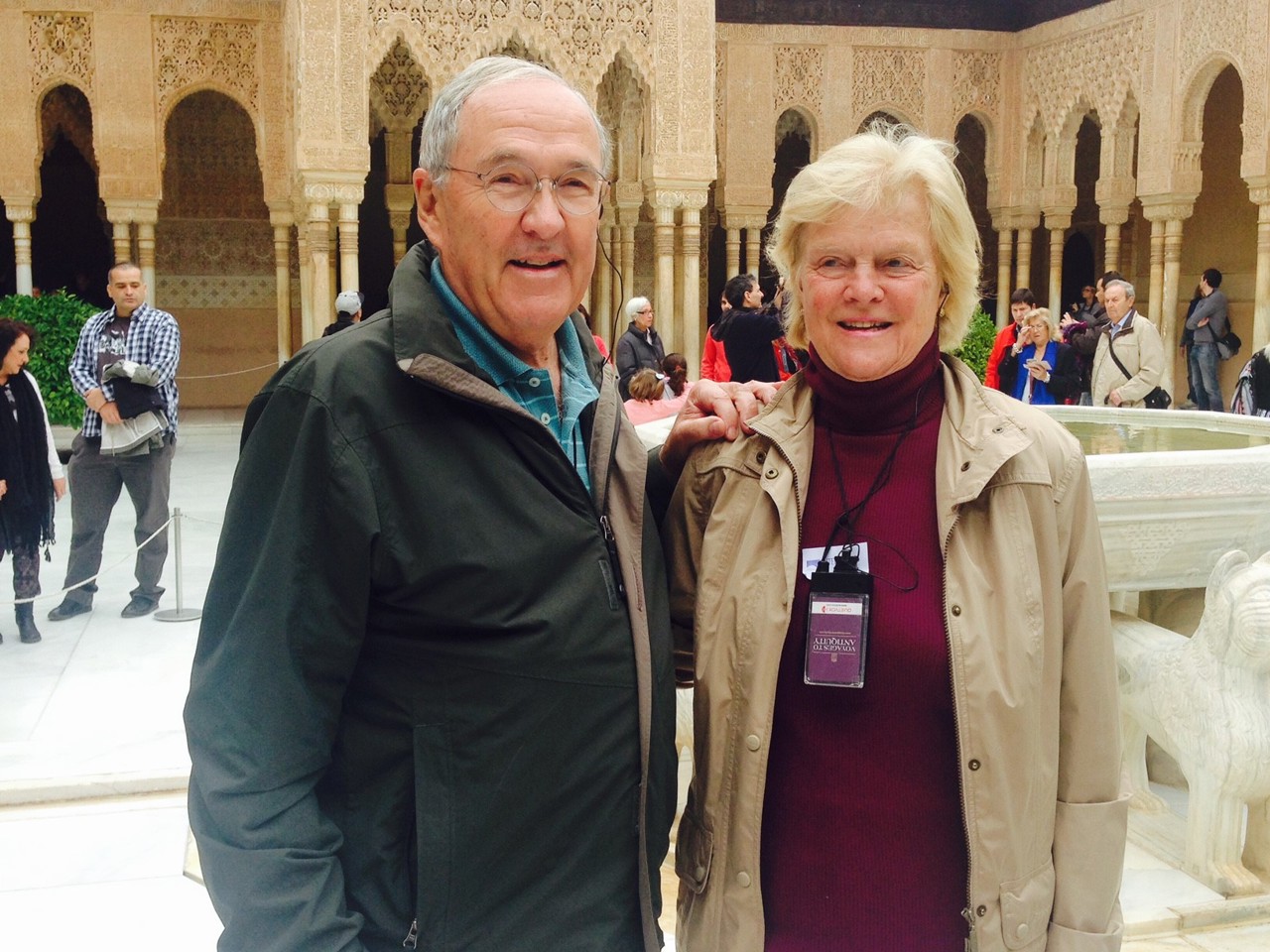
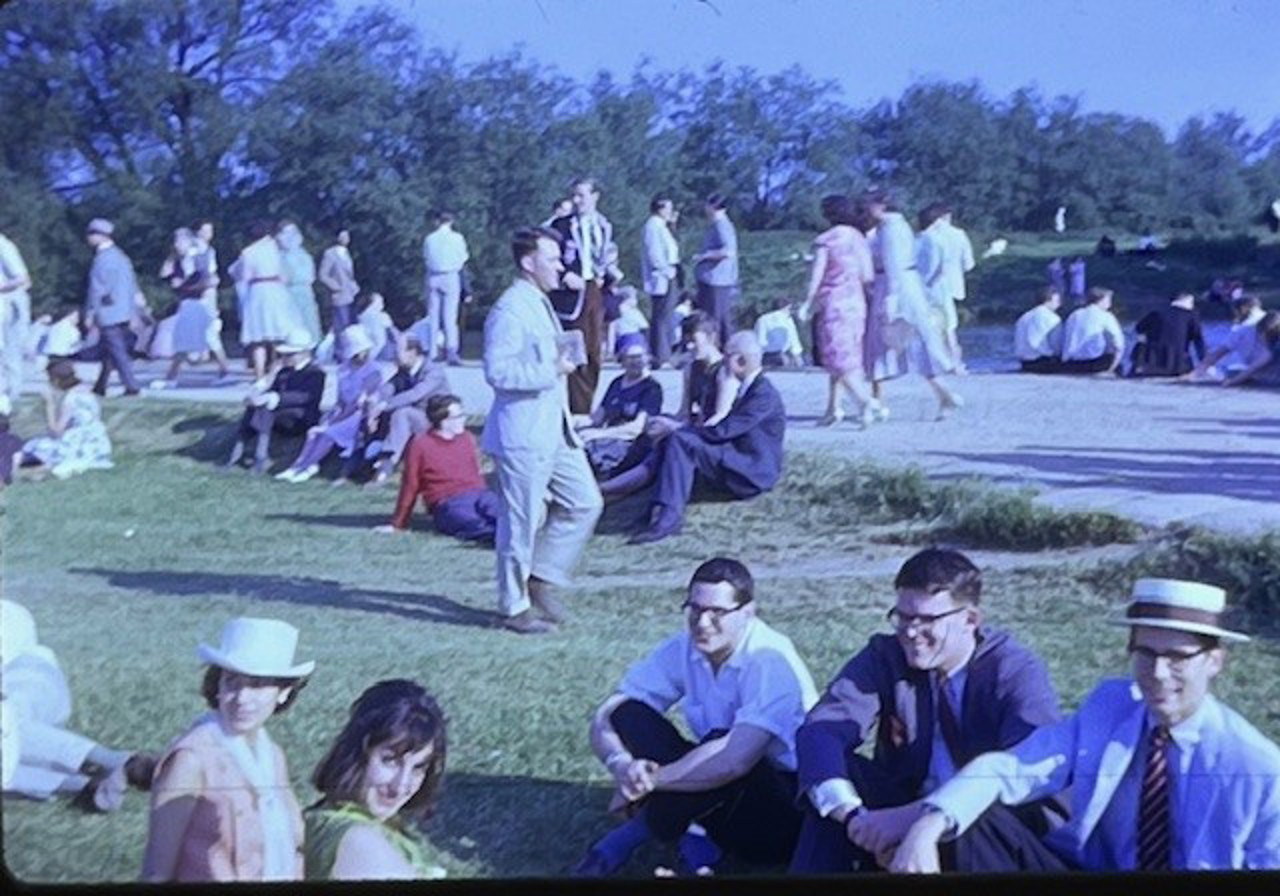
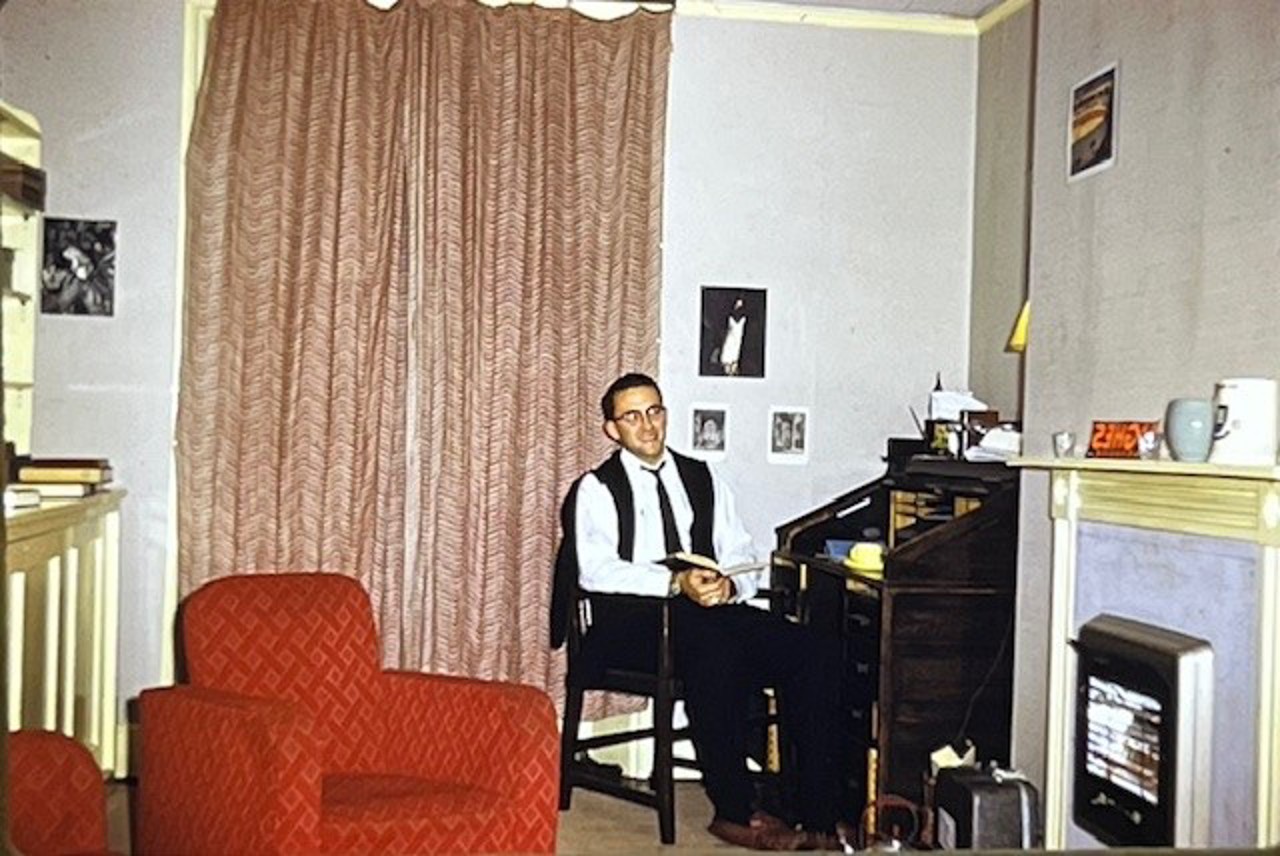
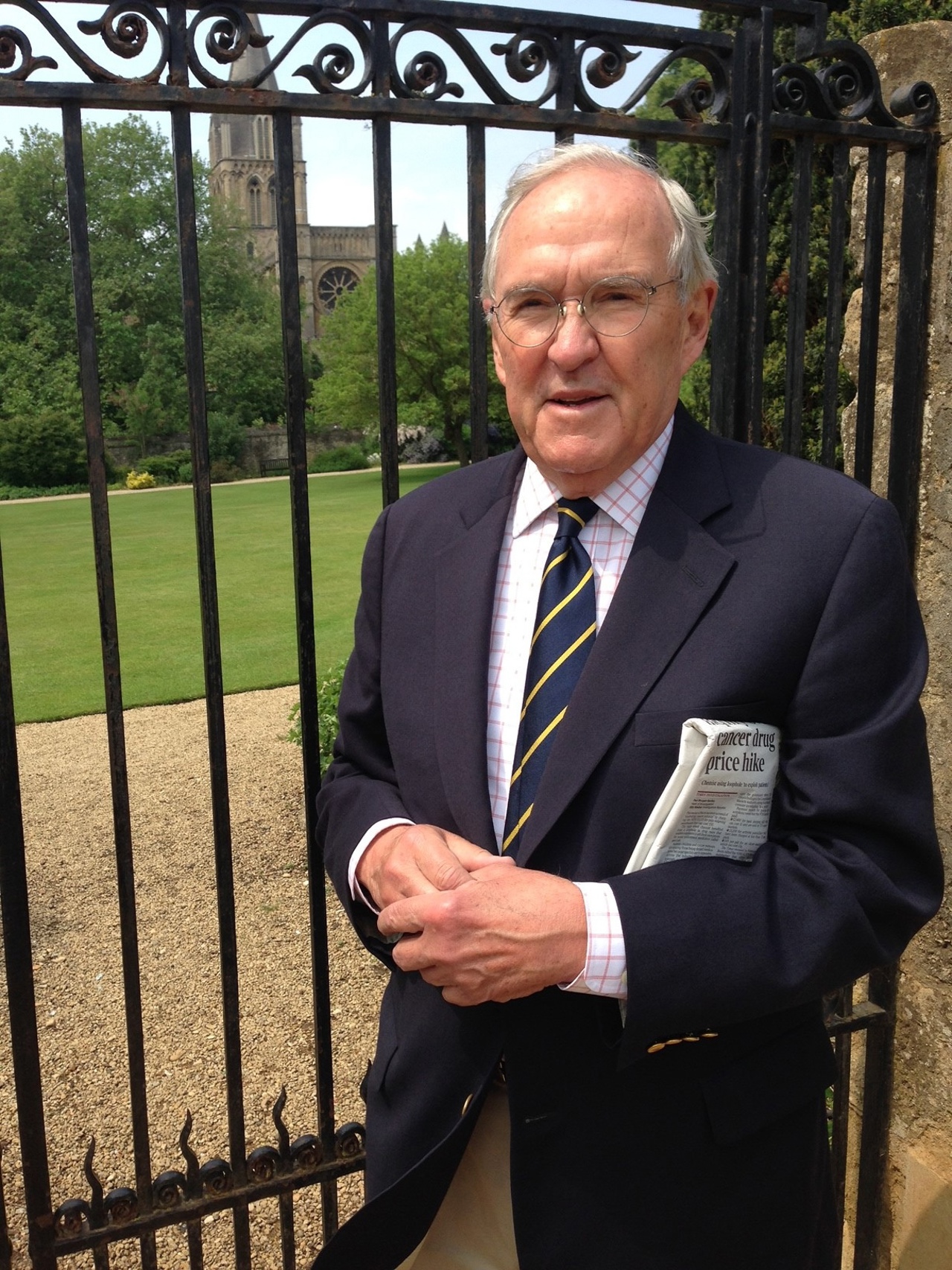
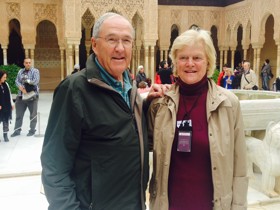
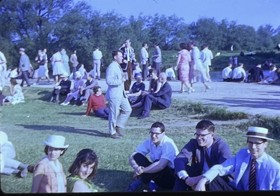
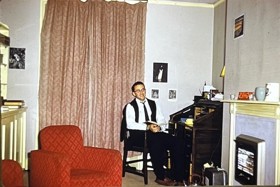
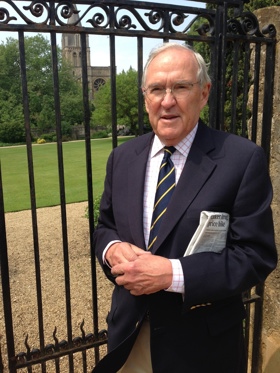
‘Our community was very tight-knit’
I grew up in Pennington, a small town near Princeton in New Jersey. My father was born in the late nineteenth century, in 1896. He had wanted to go to college, but his family ran out of money before he could go. My mother was one of 13 children, and she grew up in a country town in North Carolina. By contrast, I was an only child, so, in our family, I could do no wrong.
I had what I think of as a very typical small town American childhood. I played clarinet in the town band. I played Little League and Babe Ruth League baseball. I collected stamps. Our little town was very tight-knit, and not really part of the nearby, sophisticated Princeton community. On Sunday afternoons, our family would often go to the Reading Railroad station and watch the trains come through, and on summer evenings, for entertainment, my father would drive my mother and me in our Buick up into the Sourland Mountains for an outing.
In the seventh grade, a few friends of my parents had their children test to go to The Lawrenceville School, a highly selective nearby boarding school, so, I tested too and got in. From an educational standpoint, that was probably the most important opportunity in my life, moving on from Pennington Grammar School. I was terribly homesick the first year — even though only a day student —but it was and still is a terrific school, and I was successful there beyond any of our expectations. That was sort of a revelation, that I might have these other interesting opportunities in the future. One of my most important mentors there was an English teacher who subsequently became head of the school, a Rhodes Scholar named Bruce McClellan (Massachusetts & New College 1947). I still remember the day I was walking across campus and Bruce asked me if I’d ever heard of the Rhodes Scholarship. I said ‘No,’ and he said, ‘Well, you know, it’s a wonderful thing and I believe you should consider it.’
On applying for the Rhodes Scholarship
After Lawrenceville, I went on to Yale. I had gone there thinking I might pursue mathematics or engineering, but when I saw the richness of the courses in humanities and the liberal arts, I changed my view. Yale was a great experience, though I remember arriving and thinking, ‘This (The Old Campus) is a pretty scary place. How am I going to make an impression with these thousand other smart kids who are around?’ But you work your way through things. I got involved with the Yale Daily News and became managing editor, which enabled me, among other things, to have friendships with the leaders of the university, Whitney Griswold, Kingman Brewster, Dean Devane, and others. I majored in Politics and Economics, an extraordinary seminar program created by an economist named Ed Lindblom. The four years went by very quickly. It was a happy time although, in my junior year, my father died, and a lot of my focus was then on helping to support my mother.
When I applied for the Scholarship, we still had the system of state and then district interviews. In each case, it was intimidating being in front of these selection committee members, all of whom certainly seemed successful, confident and articulate. Having gotten to the district interview, and spending the day hanging out with the impressive competitors, I was sure I didn't stand a chance. At the end of the day, in the early evening, the candidates all stood in a row at the end of a conference table while the chairman of the selection committee - Milton Eisenhower in our case - read out the names of the four winners. It was very tense for everyone.
‘Sometimes I had to break the ice in the sink’
I sailed to Oxford on the liner United States in late September, 1961, with my US and Canadian Rhodes classmates, and that was a special opportunity for us to share.. I had applied to Univ because it was known as a law college, and I wanted to be a lawyer. But when I got there and saw that requirements for law included competence in Latin, I decided to study history. My tutors, all in College, were English gentlemen who impressed me with their intelligence and modesty and their wry senses of humor. But what I remember particularly vividly about living in Univ was how cold it was in our rooms at 83 High Street. I wore wool socks to bed and in the winter, sometimes I had to break the ice in the sink in the mornings. The second year, I moved into the new Goodhart building which had properly heated rooms and kitchenettes. It was fantastic.
The social life in Oxford was simple in those days. Someone would write a note saying, ‘Come and have a glass of sherry with me this afternoon,’ and they would put it in the pigeon post in the morning, and you would send a note back saying, ‘I’ll be there at four.’ Sometimes we’d go down to London at the weekends, which provided an opportunity to sample a cultural world which didn’t exist in New Haven. For example, it was not that expensive to go to the Royal Opera House, where we could see Margot Fonteyn and Rudolf Nureyev dance when he first came to London. And a very large part of our Oxford experience was the opportunity to travel widely in Europe and to more distant, exotic spots during the long, summer holiday. We were terribly spoiled; but that period in Oxford was a time when life was opening new and special opportunities for us.
‘We could create a terrific school’
Going to Harvard Law School after Oxford was a tremendous shock and contrast. There were so many cases to read every night, and the typical section contained 150 people. I didn’t adapt to it terribly well. But in my section I did meet Penny Kline who would go on to become my wife. We dated in our second year at law school and got married at the end of that year. It was a measure of the difference between being a male Rhodes Scholar and being a female student at law school (I believe that about 20 of our class of 525 were women) that Penny had the same grades as I but when I applied to three firms in New York, I was accepted by all of them, whereas Penny had to apply to 25 firms to get one offer. It was, I think, a very different era and certainly early days for gender fairness.
So, we both started practising law in New York after we graduated, but I was restless and when a friend called and asked whether I’d be interested in working in a city urban planning office, I agreed. John Lindsay, as Mayor, attracted many able young people to work for the city, and I was able to go to work for another Rhodes Scholar, Jacquelin Robertson. After that, I went to Lehman Brothers for 20 years, working in New York and in London. Some of the work was very gratifying, especially when we were providing financial advice to developing countries like Indonesia, but some of it was not so gratifying. I still remember the moments working in my vegetable garden in Connecticut when I thought, ‘Why am I doing this job? There must be something better for me to do.’
Bruce McClellan, my mentor from The Lawrenceville School, had put me on the school’s board of trustees in 1980. I was still on the board when, in 1994, the chief financial officer was sacked. I told the chairman of the board I would be interested in the job, particularly as the Head of School was a friend and former Rhodes Scholar, Si Bunting. So, I left Lehman and went to Lawrenceville. It was an exhilarating experience, to see what we could do for the kids and for the faculty — which Penny joined as an English teacher — and how we could create a terrific school. Since I retired from there in 2006, my combination of financial experience and being a chief financial officer for a nonprofit has also given me the opportunity to play a useful role on various boards. Of course, working with the AARS has been fun over the years. And in fact, all the organisations I’m involved with are places where I feel like I’m able to make a useful contribution, which is clearly important.
‘Life and success don’t just move in a steady, upward trajectory’’
In terms of the impact of the Rhodes Scholarship on my life, I have regularly thought about whether what I have done has reflected the values around public service and hard work that Cecil Rhodes aspired to for us. And as my story has unfolded, it may not simply be coincidence that Rhodes Scholars have played an important part. I would say too that the Rhodes Scholarship obviously made an Anglophile of me; I love the history of England, the architecture, English manners. For me, the Rhodes Scholarship was a wonderful exposure to and opening up of a world far beyond what a boy in Pennington might have hoped for.
To today’s Rhodes Scholars, I would say, remember that life and success don’t just move on a steady upward trajectory. It’s not all straightforward. There are times when things don’t seem to be working, but it’s imperative to hang in there, because it will get better. And life is long, so if whatever you’re doing isn’t working out for you now, you’ve got more time than you would think to get to a better place.
